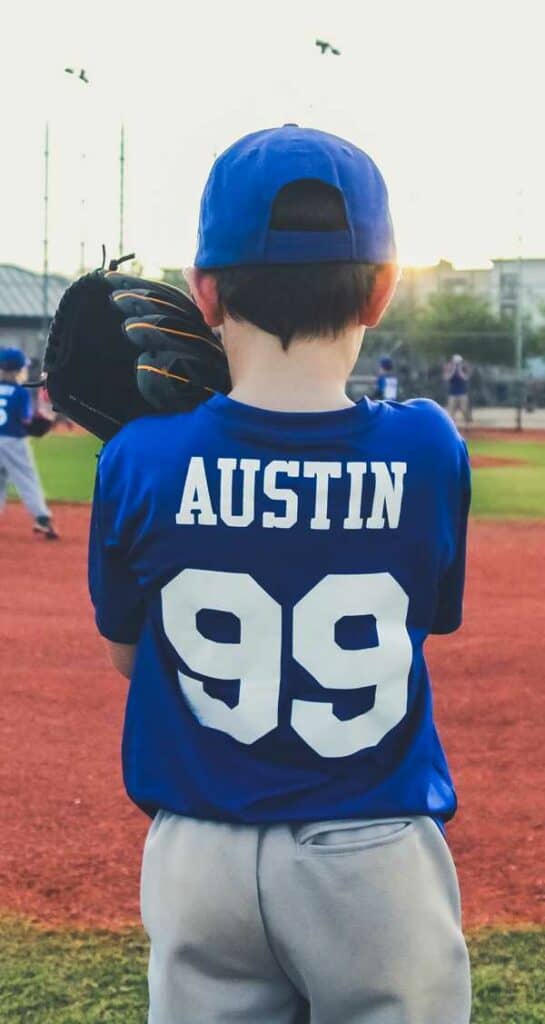Managing Injury
Managing the impact of injury is one of the main reasons parents call my office. When injury is severe or season-ending, the challenges demand strong physical and mental responses for your child and for you the parent(s).
Let us review vital protocols to address these typical injury challenges
- Keeping Motivation:
This arguably may be the primary driver for the recovery period. Staying motivated during the recovery process involves gains and then setbacks depending on the severity of the injury. Motivation is not a feeling! It is the ‘why’ of sports involvement. Why is your child participating in sports? Thus, maintaining motivation and keeping an eye on the 'why' proves vital to getting through the necessary recovery protocols and back to 100% in their sport.
Help your athlete set realistic goals of incremental improvement. Find other ways for him or her to stay involved with their team. Find other competitive outlets even such as playing board games with the family. Have a dedicated support system to complete physical therapy and recovery exercises. This support system includes you as parents, coaches, teammates, siblings, and other friends. This helpful backing sustains much valued camaraderie during this challenging time.
- Physical Therapy/Rehab:
Most injured athletes must engage in various forms of physical therapy and rehabilitation to regain and maintain strength, mobility, and flexibility. Many times, this involves attending PT with a medically trained professional and doing basic drills and exercises at home.
Sometimes, the home exercises become a battle ground between parent and athlete when the athlete finds them boring or time consuming. Consider having a set schedule for doing them at home and provide needed support and accountability for completion. Find ways to make it fun such as doing them together, watching a show, or having pumping music on while doing them.
- Emotional/Mental Support:
Whenever injury occurs, it impacts the mental and emotional state of your child. Both you and your child have invested significant time and effort into the sport, thus when injury setback occurs, it generates negative emotions such as anger, anxiety, disappointment, sadness, and even rejection or loss of hope.
Coping with these negative thoughts and emotions may require professional help from a sport psychologist or a therapist who understands sports and injury. Athletes need a safe person to share these automatic negative thoughts and feelings, assist them in moving through them, and reframing them towards emotional improvement. Maintaining a healthy mental status while injured involves talking through these common difficulties. It offers emotional support often needed to complete PT and getting through more idle time when your athlete cannot do their normal activity.
- Plan Adjustments:
Without a doubt, your injured athlete needs to adjust plans for training and competing. Some injuries have shorter recovery times than more serious injuries, but the timeline for recovery means modification to original intention. This includes reducing types and intensity of training, modifying or incorporating alternative types of workouts, and perhaps temporarily not practicing nor competing.
Stopping workouts and competition hits the psyche more than anything (unless your child is feigning the injury, but that is another blog post for another time). Provide a safe place for your athlete to talk about this loss. You may need a professional who can help them navigate this adjustment time, normalize adjustments, and the time it takes to return at full capacity.
- Sleep and Nutrition:
Brain and body care are paramount to recovery and returning to practice and competition in a timely manner. Injured athletes need proper rest and adequate sustained sleep each night more now than ever. Depending on the age of your athlete, he or she needs 8-10 hours of sleep each night.
A clean and nutrient dense diet is also essential to optimize the body’s recovery mechanisms when injured. Avoid fast food, fried foods, and any processed and enriched items. Yes, no Chick fil la or Whataburger! Make sure your athlete is consuming quality proteins, essential fasts, whole grains, and fresh veggies. You may need to supplement the diet with a mineral complex especially magnesium, selenium, zinc, potassium, and chromium.
- Mental Skills Training:
While an injured athlete is sidelined physically from activity, this is the perfect time to focus on mental and life skills training. Focusing on mental skills such as goal setting, accurate mindset, visualization, grounding, and stress management boosts an athlete’s ability to return to sport better than before the injury.
Concentrating on life skills such as confidence, resilience, motivation, communication, and managing fears leads to stronger mental toughness prior to injury. These skills are all tied to actions despite feelings. All these skills advance the mental capacity to return strong and compete with a new level of power.
- Returning to Sport:
Assuming your child is not feigning injury, he or she will want to rush back into activity as soon as possible. Returning too soon may risk re-injury making things worse. Again, all the above are vital to navigating this setback and restoring your athlete to a stronger form of self.
Once healed and medically released to return, the likelihood of re-injury decreases. Gradually reintroduce activities and make micro-progressions to sport-specific training. This return takes time, and the above protocols need to continue.
Obviously, managing an injury setback is demanding. What your athlete does with this time determines how well he or she returns. Prioritizing both physical and mental well-being leads to a sharper and highly confident and mentally-tough athlete.

 Parenting athletes is hard work. There's an entirely new and different set of dynamics at work. You have to be mom, dad, or mom and dad, coach, counselor, EMT, equipment manager, engineer, and seamstress all before dinner! You're not alone and maybe, just maybe, we can help each other navigate this never-ending path to glory. Hey, what's your biggest challenge with your athlete?
Parenting athletes is hard work. There's an entirely new and different set of dynamics at work. You have to be mom, dad, or mom and dad, coach, counselor, EMT, equipment manager, engineer, and seamstress all before dinner! You're not alone and maybe, just maybe, we can help each other navigate this never-ending path to glory. Hey, what's your biggest challenge with your athlete?

